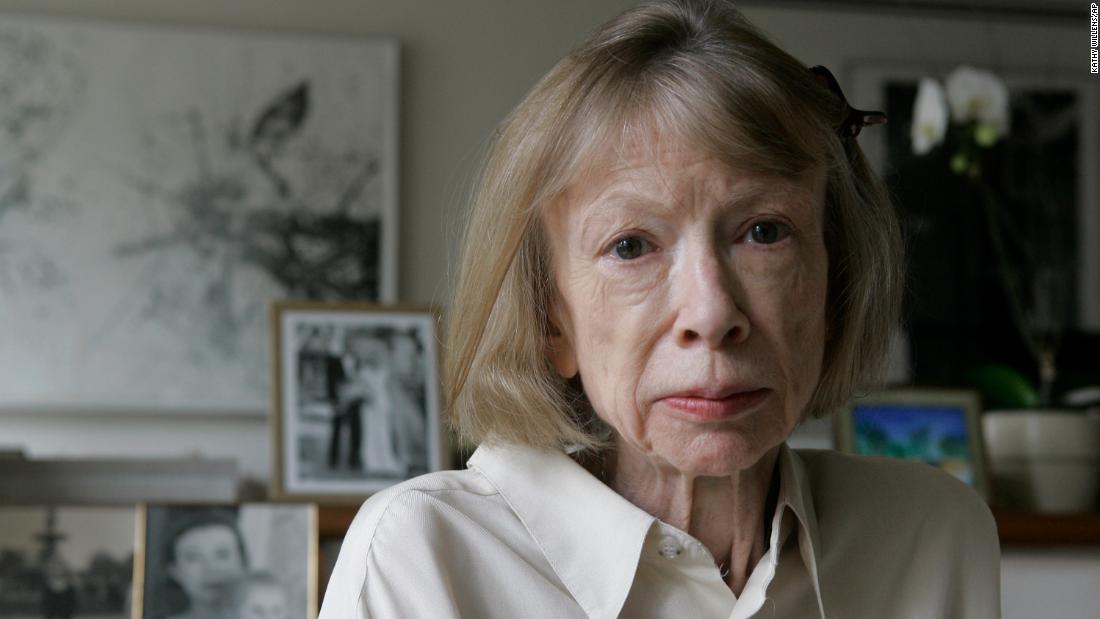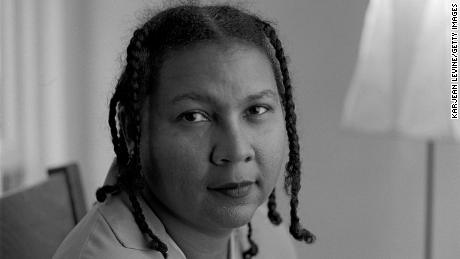Like almost every other writer I know, I kept returning to her — as a college student, as a graduate student, as a teacher of writing. Every time I come back to her essays, they thrill and shock anew; her sentences dazzle.
Here’s just one famous sentence, from the beginning of “Slouching Towards Bethlehem”: “I went to San Francisco because I had not been able to work in some months, had been paralyzed by the conviction that writing was an irrelevant act, that the world as I had understood it no longer existed. If I was to work again at all it would be necessary for me to come to terms with disorder.” As we sit here, shattered by a global pandemic, trying to fathom how — if at all — to speak to this chaotic moment, it’s hard not to notice how this sentence by Joan Didion still rings terribly true.
For those of us who counted Joan Didion as a literary hero (and there are many), it didn’t really matter when you opened her books, whether in the middle of a global pandemic or during a corrupt presidential administration or while watching the horrible and banal environmental devastation of late-capitalist America. Didion’s language would somehow match the moment: Her furious prose would light your world more brightly. Didion’s burning take on her surroundings made it feel more imperative to be alive to your own.
Didion is now gone but her language lives on. I love all of Didion, but most often return to “Slouching Toward Bethlehem,” her 1968 collection of essays, which are about counterculture and California, because I am a Californian and I grew up in the shadow of that counterculture, with all its successes and paradoxes, hypocrisies and failures. I admired how Didion was also supremely prescient in reporting the fractured America of her moment, but also in forecasting the fault lines — social, ecological — that would haunt us for generations to come.
Every time I returned to her writing, she’d set ablaze a new fire in my mind, and her words would later reverberate in my inner ear (as she once said the W.B. Yeats poem, “The Second Coming,” did inside hers). What Californian who has lived through these recent fire seasons does not feel these sentences in his or her bones:
“October is the bad month for the wind, the month when breathing is difficult and the hills blaze up spontaneously. There has been no rain since April. Every voice seems a scream. It is the season of suicide and divorce and prickly dread, wherever the wind blows.”
This sentence, and the essay from which it comes (entitled “Some Dreamers of the Golden Dream”) are not just about mere weather. They are about misplaced hope and ambition — about, as she put it, “the trail of an intention gone haywire.” They are about some mismatch between land and people, and about a profoundly misguided civic imagination that seems to lead to destructive ends. The essay is on one hand microcosm — about a murder trial in California, circa 1965 — but it is also macrocosm — a vision of the state as a desolate end-product of a faulty American dream, and a critique of the entire American project, of the entire American imagination.
For those who haven’t read Didion, it might feel like such a critique would be bleak, boring or sour. It wasn’t. It’s not. It is bracing to feel that noticing your own discomfort is worth something, and that right under the skin of any so-called normal life in this country is something sinister worth watching, worth arguing with. All of this is to say: Didion affirms your own right to think and feel and notice. Didion’s fury is liberating.
Beyond being a writer and stylist par excellence, Didion was also impossibly glamorous; she hailed from a moment when (despite her protests to the contrary) writing meaty pieces for print, with hearty intellectual support, felt possible. As she worked, Didion became an early master of the now 50-year-old genre that came to be called New Journalism. (Didion describes it this way: “But since I am neither a camera eye nor much given to writing pieces which do not interest me, whatever I do write reflects, sometimes gratuitously, how I feel.”)
These slantwise and sidelong pieces contained a record of the self who recorded them; they were hybrid works that held the crafts of fiction and poetry lurking inside them. They were cosmopolitan and witty and assumed a thoughtful, hungry literate audience. For all Joan Didion’s protesting that she could not write or had been paralyzed, she not only wrote — she transformed literature.
How can I say how much we will miss her? In what world would it be possible for someone to take her place? Who will write so thoughtfully about mourning, just as we have so much to mourn? Who will challenge us to the outrage we need to survive this moment? It is not just that she is gone, but that the world in which she wrote also seems scattered. And yet, she would also remind us that perhaps it has often felt so. The essay collection “Slouching Towards Bethlehem” takes its title from the Yeats poem, “The Second Coming.” That poem was written after the First World War and in the outbreak of the Irish War of Independence — a time at which, it feels important to note, the world was also experiencing a pandemic of massive proportions. That poem begins:
“Turning and turning in the widening gyre
The falcon cannot hear the falconer;
Things fall apart; the center cannot hold;
Mere anarchy is loosed upon the world….”
In recalling that poem, Didion was reminding us of our continuity with other flames, burning back through time, on the troubled globe. Didion is also such a light. In some ways, reading Didion reminds us that whatever our strange and disorienting moment on the rupturing planet, we can still try to write, to name, to struggle, to see. For that, Joan Didion, we are so grateful. You are a companion to cherish.









More News
Last of Escaped Zebras Captured With White Bread, Oats and ‘Positivity’
The Bleak Life of a Deposed President and His Wife, Held Captive
Frank Stella, Towering Artist and Master of Reinvention, Dies at 87